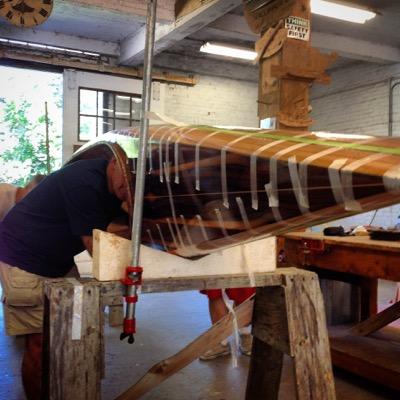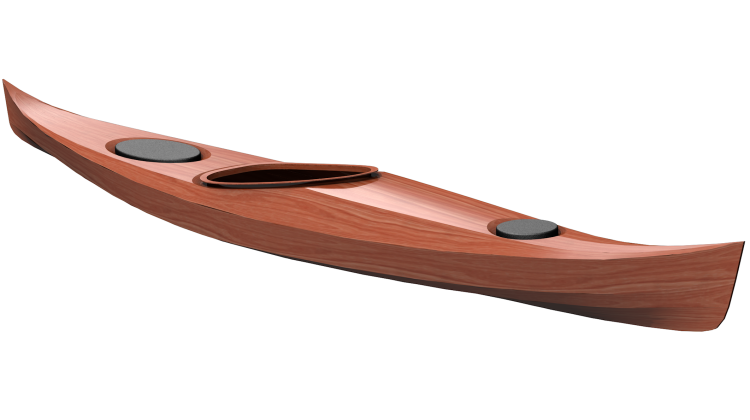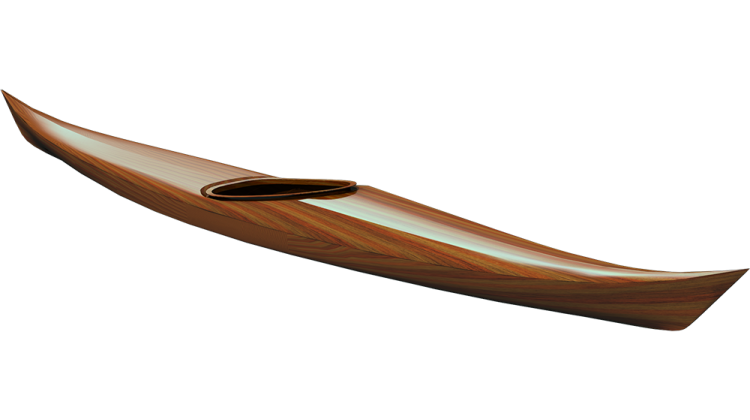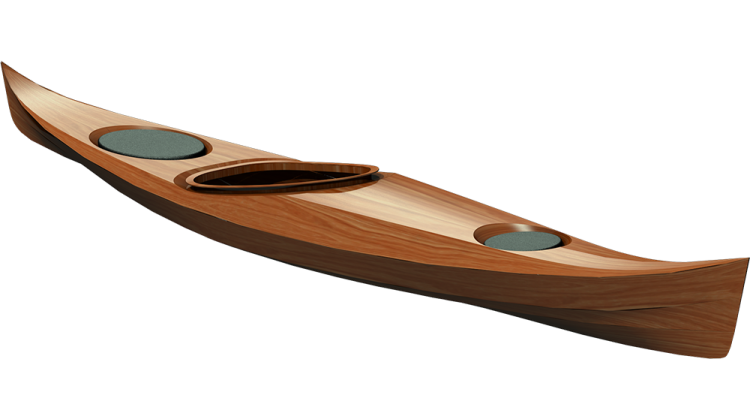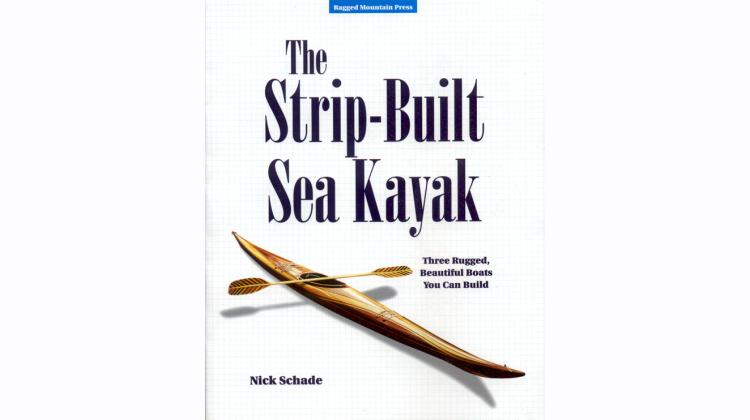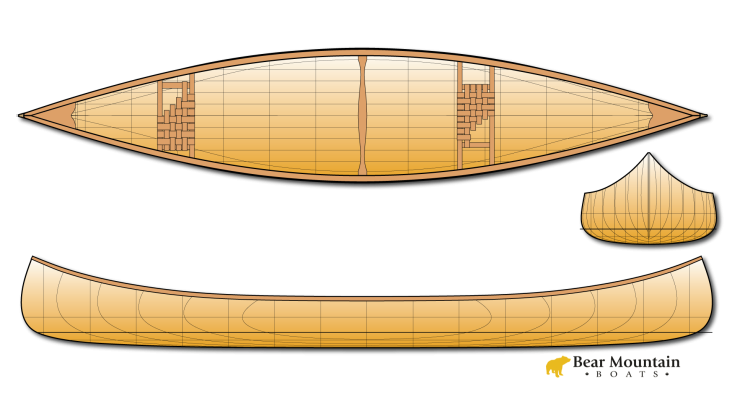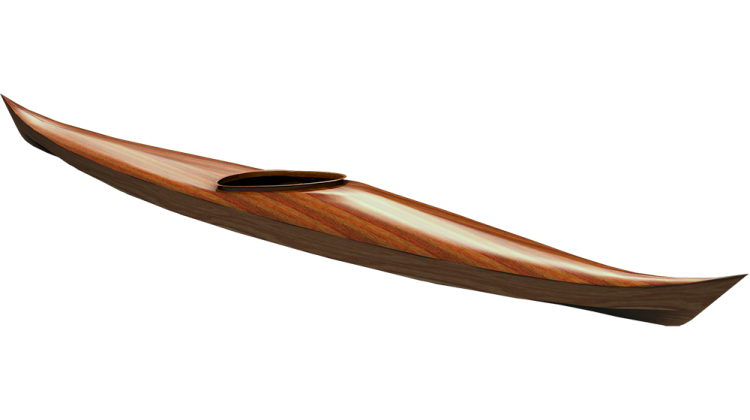- Image

I get a lot of calls from people with questions about going into business bulding boats. It can be hard to be realistic about the business while your head is stuck in the boat. Here are some of the questions and some long winded responses.
"I'm just enquiring to see if it would be possible to build your designs and then sell them?"
I get variations of this questions all the time. There is immense appeal to the idea of building and selling boats as a business. You have spent your life working in an office or assembly line or whatever, you have accumluated a shop full of tools and want to put them to profitable use. Or, you are young and want to avoid a lifetime in an office, assembly line or whatever and really want to make something authentic and honest. How much more authetic and real could you be than building boats?
Building boats is fun and satisfying. It requires skill and imagination. There is something wonderfully gratifying in converting a pile of wood into a vessel that can travel across the water. Of course you want to do it. It is hard to imagine anyone wouldn't think it was the coolest idea ever.
Build boats, make money! What more needs to be said?
Well, there are a lot of distance between making the boat and making the money. If you have already built a boat you may have already had someone ask you to build one for them. You may have dozens of friends who would love to have a beautiful boat like the one you built. It is easy to imagine that the boats just sell themselves, all you need to do is make a pretty thing and it will sell. Unfortunately, that isn't necessarily how it works.
The answer is: Yes, you can, but it ain't easy.
"How much should I charge?"
Or, often "I built this kayak. How much is it worth?" The answer to that is really pretty easy, it is worth exactly as much as some one will pay for it. Unfortunately, that is not too informative. The question really is, "How much is it worth to you?" closely followed by "Will anyone pay that much?"
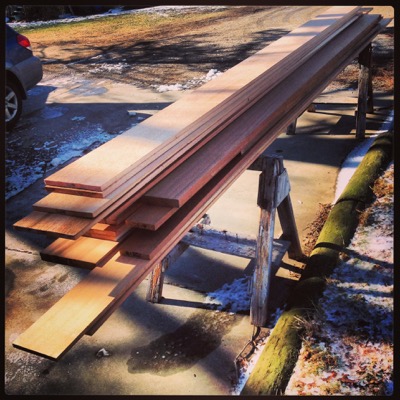 The most basic economics are pretty easy to understand, if you spend $1 on materials and sell it for 90¢ you are not doing what most people call "making money." You need to charge enough to at least cover the cost of materials, at least then you can say you have a hobby that just about pays for itself. Unless of course you need tools. How about heating or cooling? Does your shop need lighting? These things cost money, and you aren't really making money if you don't account for all the expenses. But if you do, all you can say is you are having fun for free. That's great. If you are retired and you don't need any income, then a hobby that covers its own expenses is pretty cool.
The most basic economics are pretty easy to understand, if you spend $1 on materials and sell it for 90¢ you are not doing what most people call "making money." You need to charge enough to at least cover the cost of materials, at least then you can say you have a hobby that just about pays for itself. Unless of course you need tools. How about heating or cooling? Does your shop need lighting? These things cost money, and you aren't really making money if you don't account for all the expenses. But if you do, all you can say is you are having fun for free. That's great. If you are retired and you don't need any income, then a hobby that covers its own expenses is pretty cool.
But lets say you actually want to earn money, like paying you for the time you have spent. Do you want to earn a decent hourly rate? What do you consider a decent hourly rate? What do you make now if you figured in dollars per hour? Do you want to continue making that much?
As in, do you want to keep a roof over your head, pay for food, afford health insurance and possibly put your kids through college? Do you want to be able to put away enough for a comfortable retirement some day? What are your goals?
Let me give an example that I think may be informative. I recently visited the manufacturing facility of one of the biggest composite kayak builders in the world. They make more fiberglass kayaks than just about anyone. It is in a fairly small building in the back of an industrial park. They crank out roughly 15 boats a week. They have about 15 employees. So, assuming a fairly normal work week, that comes out to 40 hours per boat, i.e. one kayak per work week for each employee. Obviously, that isn't how it works, different employees do different things and after a week they have 15 new kayaks prepared to ship out. These kayaks sell for around $4,000. So, some easy math tells you the employees get paid $100/hour.
Of course they don't. So, you figure the owner is getting rich. Well he isn't. The skilled employees get paid OK, but not exactly extravagently, and the owner gets by on a very modest lifestyle. So, where does the money go?
I should also say, that if you were to build a fiberglass sea kayak straight through, from laying the first fiberglass to tying the last deckline knot will take less than 40 hours. While there is an average of 40 in each boat, the actual time spent actually building is less. There is a lot more to making things than just the time and money spent actually making the thing.
In order to make something you need to actually procure materials. This may involve phone calls to suppliers, driving to other states to pick up specialty materials, getting stuff shipped, purchasing stuff that turns out to be inadequate or incorrect. These materials often don't come in a form that is ready for immediate use, it may need to be broken down or machined in some way before you can put it to use. There is inevitable waste. It is hard to convert 100% of material purchased into a finished product. Stuff also gets damaged. As a business this all requires time and money that needs to be paid for by selling your boats.
While we are on the subject of expenses: how much does it cost to operate your car when you drive 100 miles to pick up some prime cedar? Your shop space in your garage could actually be used as designed to protect your car from the weather, how much are you paying in taxes and insurance to maintain that space so you can "make money"?
To make money at building boats, you first need to determine how much it will actually cost. How much time will it actually take between saying you will build a boat to actually delivering it to a customer. If you really want to do woodworking, what would a local cabinet maker pay you to help him out. How much an hour do you think your time is worth?
If you are going to build my designs I do require a royalty on each boat you sell. Your price should include my royalty. Sorry, but I worked hard on the designs and if you think they are good enough for you and your customers, my work has value to you and it shouldn't hurt your business.
What Else is the Customer Paying For?
All the above was just about paying for the expenses of building a particular boat, but there is more to the value of a well made object than just the costs to make that object. They clue is in the "well made" part of the statement. If you are doing a good job, you had to do something in order to get the place in your life where you are capable of making something that is "well made." You had to acquire skills.
First there are just the direct skills as a craftsman to hold the tools so they do what you want with them. This is no mean feat. It can take years to learn how to manage a hand plane so it cuts well and creates good results. Then there are the skills to know what to do with said hand plane. Just knowing how to hold a plane is not sufficient. You need to know how to do what needs doing when it needs to be done. You also need to know how to choose appropriate materials, and how to work with those materials.
Beyond that you need to know how to choose your project, something that matches your skills and produces an exceptional finished product that is special beyond what is available from other sources. In the world of kayaks, there are good kayaks and not as good kayaks (any kayak is better than a jetski) and great kayaks. You want to have the knowledge to be able to pick out the right project to make the most of your boat-building skills.
All of this is by way of saying, much of the value you bring to boat-building project is your years of acquiring skills. When you put a price on your project you are placing a value on yourself and the hard earned skills you have acquired over the years. Cost of materials is a small part of the cost of a boat building project. Most of it is labor, and beyond the labor in one boat is the labor put while learning how to do the work. How much are the years you spent getting good at the skills required to do a good job?
If you don't think they are worth much, you may be right. In which case you probably shouldn't be putting a high price on your product, it may not be very good. But if you worked hard to get good at making nice things, you should acknowledge that effort, if only out of self respect.
"How should I sell my boat?"
Once again this week I got a call from someone who built a kayak from my plans. His life had changed since he built it, now he wants to sell it. He wanted to know what was the best way to do that. I told him that I haven't a clue. It depended a lot on how much he wanted to sell it for. He thought he did a good job, he thought his efforts were worth something. He wanted more than cost of materials. He felt his time and effort produced something of value.

Do you go on to Craigslist looking for really nice things at full price? Is EBay where you seek the best stuff at retail prices? When you are looking for a real nice thing, do you drive the streets of your town looking on peoples front yard? If you want to sell something at the highest price you can get, does it make sense to advertise it where people go to find cheap deals? Probably not.
At first blush, EBay or Craigslist seems like a very convenient way to reach a large market. They are cheap and offer the possibility of more people seeing it than drive by your front yard. This is fine if all you want is to pay for your hobby. You can offer really good deals to a wide market and people might be receptive.
But are you trying to pay for a hobby or run a business? If you have a nice product and you want people to see it as more than a homemade boat built by some tinkerer in his garage, you need to be a little better at marketing. You might need to buy real ads in real publications or purchase google adwords that will show up where people appreciate what your are doing. These days your don't even exist if you don't have a webpage. A simple FaceBook Page is free and easy, but doesn't fully signify a serious endeavor by itself. A real, well designed website takes time and money. There are boat shows and local craft shows and other trade shows where you can talk to customers and educate them about what it is you are doing. Nobody will buy anything if they don't know what you are doing.
 Handmade boats don't just sell themselves. Popular wisdom perceives wooden boats as heavy, weak and slow. Backyard boatbuilders are often looked upon as unskilled hacks who are lucky to be able to get their schooner out of the basement if they even finish the boat before they die. Until you convince people otherwise, you are a hapless loser who knocked out a piece of crap over the weekend. To most people your boat won't by "worth" as much as that $300 shiny solid plastic kayak they can get at the local reputable sporting goods store and you will be hard pressed to get them to buy anything you build.
Handmade boats don't just sell themselves. Popular wisdom perceives wooden boats as heavy, weak and slow. Backyard boatbuilders are often looked upon as unskilled hacks who are lucky to be able to get their schooner out of the basement if they even finish the boat before they die. Until you convince people otherwise, you are a hapless loser who knocked out a piece of crap over the weekend. To most people your boat won't by "worth" as much as that $300 shiny solid plastic kayak they can get at the local reputable sporting goods store and you will be hard pressed to get them to buy anything you build.
You must convince your future customers that your work is worth their money. This requires educating your customers, otherwise known as "marketing". Marketing requires money. Money means the cost of your boat just went up again.
My most successful marketing has been "free publicity" in the form of articles in national and international magazines and print media. One editorial article in a periodical with several hundred thousand subscribers will give you a legitimacy that can't be beat. But those media outlets need to know you exist first. This can come through the shows mentioned above. Another way is press releases.
Periodicals are actually constantly seeking new things to write about. A well written press release describing your work in a way that would appeal to their readership may get their attention. But, most important is good images. Look at a magazine that has a "Christmas Gift Guide". It is the images that sell the magazine. You may need to rent a large studio for several days and pay a professional photographer with high end equipment to take good images. One good image may cost thousands of dollars. One good image may be enough to earn you hundreds of thousands of dollars. You may not want to spend that much, but even "free publicity" can cost money. Also note that the media landscape is changing, print magazines are in decline, how will you rise above the noise on the internet?
"What Should I Do?"
Let me go back to the major manufacturer of fiberglass kayaks mentioned earlier. They sell their kayaks for about $4,000. People complain about this price, but it is actually very reasonable. Considering all the costs of production, marketing and overhead such as rent, utilities, insurance and retirement, this is just enough to provide a modest living to the folks building the boats. They have an established reputation, have refined their production process and that is the price that works for them.
Today when I looked on EBay and searched for "wood kayak." I found several brand new strip-built kayaks available for just under $4,000. These are made somewhere in Asia. They look quite nice. In fact I'm quite sure they are building from my design without my permission. I can't vouch for the quality of construction, but hey, it looks good online.
Do you think it makes sense to try to compete with fiberglass or Asian labor based on price? Do you think you can make an individually hand crafted kayak more quickly than someone can throw fiberglass in a mold or for a lower labor cost than a villager in Thailand? Even the simplest wooden kayak will take more than 40 hours to build to quality level that is viable on the market. If you think you can be anywhere near the same price, where are you cutting corners to keep the price so low? What is it that you will offer that makes your boat something that someone else wants to buy?
I really don't know what you should do, but if you are serious about it, you need to sit down and have a good long hard think about how you are going about it. I'm not talking about dreams about how beautiful your boats will be, but serious rational thoughts about how the whole deal will work. What is it you are trying to accomplish. It is perfectly OK to make a few boats and sell them cheap, but this isn't going to make money. Don't give up your day job.
If you want to evolve on a real business you need to first build a boat before you do anything else. (I receive many of these calls from people who have not yet so much as built even one single boat.) Build something you like and would be happy to keep for yourself. If you don't want it, chances are none of your friends will either. Then build another. Then with the knowledge of what is involved in actually making the boats, think about how to make it work realistically. Identify your customer, start figuring your costs, determine a price, start marketing and introduce yourself to your customers and be prepared to wait a long time before you sell anything. It could be years.
If you want to build boats, build some boats. Have fun doing it. If you want to, make up a price that makes sense to you and put the price on your boat, you might get some enquiries. Maybe bring it to some local shows because it will be fun to talk to people about your boat. If you are lucky you will sell something so make another. But don't expect to be able to sell boats as fast as you can make them any time soon. If you are patient and persistent some day you may do well enough to earn a living at it. As you get to that point you will learn a lot, make some beautiful things, and have a lot to be proud of. For some people that is reward enough.

